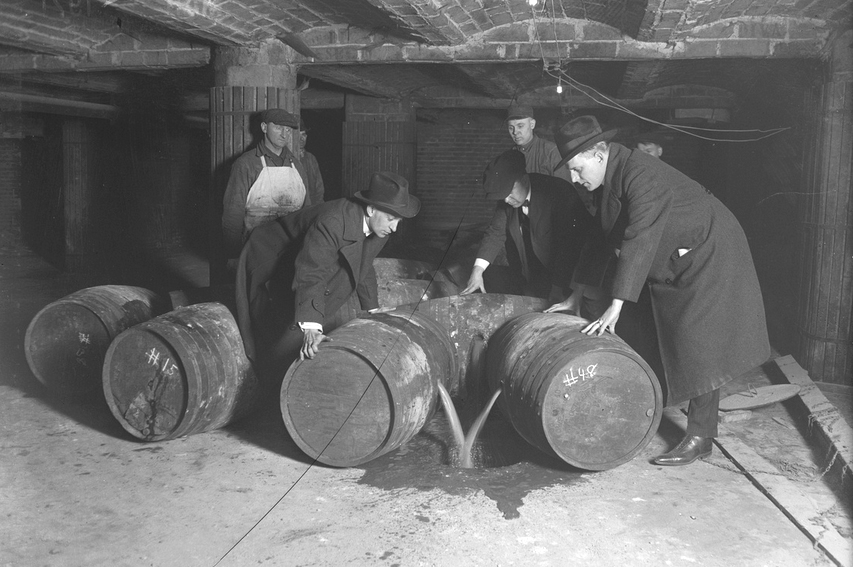Volstead, << VOL stehd, >> Act provided for the enforcing of national prohibition of the use of intoxicating liquors. It was passed by the Congress of the United States in 1919, over the veto of President Woodrow Wilson. The 18th Amendment to the Constitution prohibited the manufacture, sale, or transportation of intoxicating liquors within the United States. It also banned the import or export of such beverages. The Volstead Act provided the means to investigate and punish violators of the amendment. The act took its name from that of Representative Andrew J. Volstead of Minnesota, who introduced it. The act defined intoxicating liquors as beverages which contain “one-half of one per centum or more of alcohol by volume.” After the ratification of Amendment 21, which repealed prohibition, the Volstead Act expired automatically, except in the Territories. See also Prohibition .

